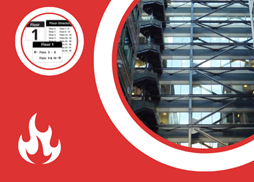COVID-19: 10 Top Tips from The Lucy Rayner Foundation looking after your mental health
12-06-2020
In these unprecedented times, our lives have changed almost in an instant. We all handle change differently; some of us will find it easy to keep our minds and bodies busy, others will not.
Our current ‘normal’ is one where we are no longer able to sit in a full office and laugh with our colleagues, visit our family for a Sunday roast or relax in a pub garden with friends in the sunshine. Instead some of us will lose a loved one, some of us will beat coronavirus and some will not.
When it is so difficult to find the positives in life we need to be kind to each other now more than ever whilst also focusing ourselves at the same time.
Our grandparents are now learning to face time, our children are painting the walls and many of us are now professional banana bread bakers!
We are in this together, and we will get through this. In the meantime, our friends at The Lucy Rayner Foundation have shared their 10 Top Tips in keeping our mental health well during these difficult times.
1. Seek accurate information about the Coronavirus
Concerns about the Coronavirus is perfectly normal but make sure that the information you are getting is coming from a reliable source.
Sources like the World Health Organisation (WHO), the European Commission and from the Prime Ministers daily briefing.
2. Set limits about the new surrounding Covid19
Try to limit the time you spend watching or listening to the news on COVID-19.
This includes social media and breaking news alerts on your phone.
3. Get yourself into a daily routine
Being in lockdown life, it is very uncertain and there is going to be some disruption to your normal daily routines. It might be helpful to plan your day or your week ahead, especially if you are working from home or if you have children.
Plan your day to be as normal as it used to be including your wake up and sleep schedules. New daily plans can include e.g. working hours, cleaning times, workout times, watching TV and meal times.
4. Look after yourself
Take some time to relax, practise mindfulness – this can help to release any difficult emotions or worries that are building up.
Eat well and on a regular basis. Make sure you are getting enough exercise and sleep.
5. Reach out to others and support people around you
Take some time to relax, practise mindfulness – this can help to release any difficult emotions or worries that are building up.
Eat well and on a regular basis. Make sure you are getting enough exercise and sleep.
6. Maintain a sense of hope and positive thinking
Try and focus on things that are positive in your life. Listen to positive messages, podcasts and motivational speakers.
Keep away from anything that you feel is negative for your mental health.
7. Acknowledge your feelings
It is import to acknowledge how you are feeling in these uncertain times to yourself and to others. Try to focus on things that you can control, such as how you act, who you speak to, where you get your information from
It’s good to acknowledge that things are outside of your control and if you are feeling anxious or overwhelmed – this is normal. If you feel that your anxiety is too overwhelming you can try some relaxing techniques such as mediation, listening to calming or uplifting music, cooking, gardening, or exercise.
This is a good time to experiment and find things that can work for you to reduce stress and anxiety.
8. Do things that you enjoy doing
If you are feeling worried, anxious, lonely, or depressed do more of the things that you enjoy and make you happy.
Make an effort to focus on doing more things that you enjoy that. Hobbies, such as baking, gardening, sewing. Why not learn something new, something that you have always wanted to do but never have the time. There are lots of free tutorial and courses online if you wanted to explore on the internet.
9. Keep Your Mind Active
If you have an active mind and tend to overthink there are a few things you can do to engage your mind.
Read a book, write in our journals, create poems, play games with the family, do puzzles, draw or paint. Find whatever it is that works for you.
10. Ask for professional help
If you are still struggling with self-isolation and you have followed all the steps 1 – 9 and you are still feeling low you may need to consider professional help. You may need to consider reaching out to a helpline or a professional counsellor or support from a friend.






